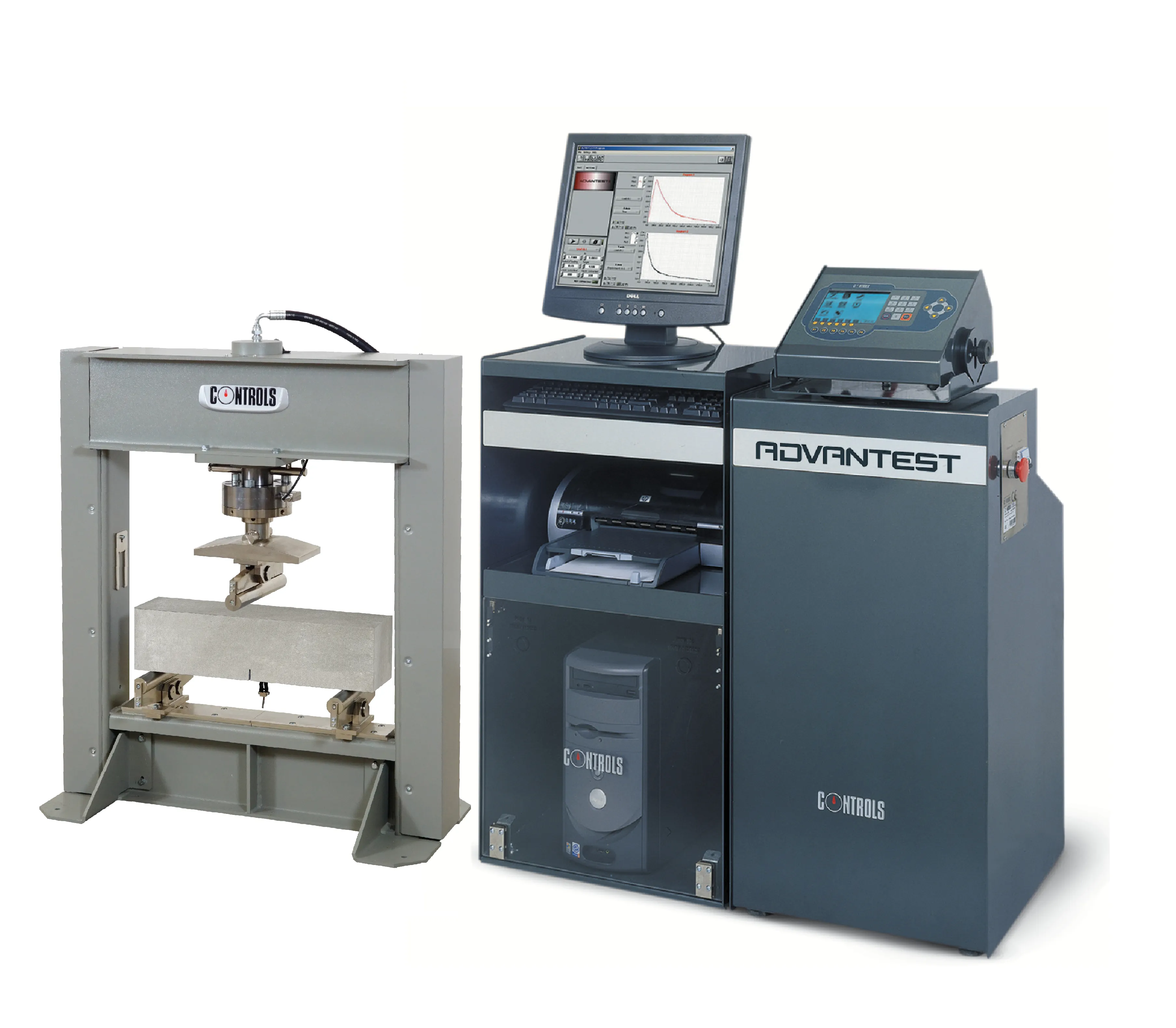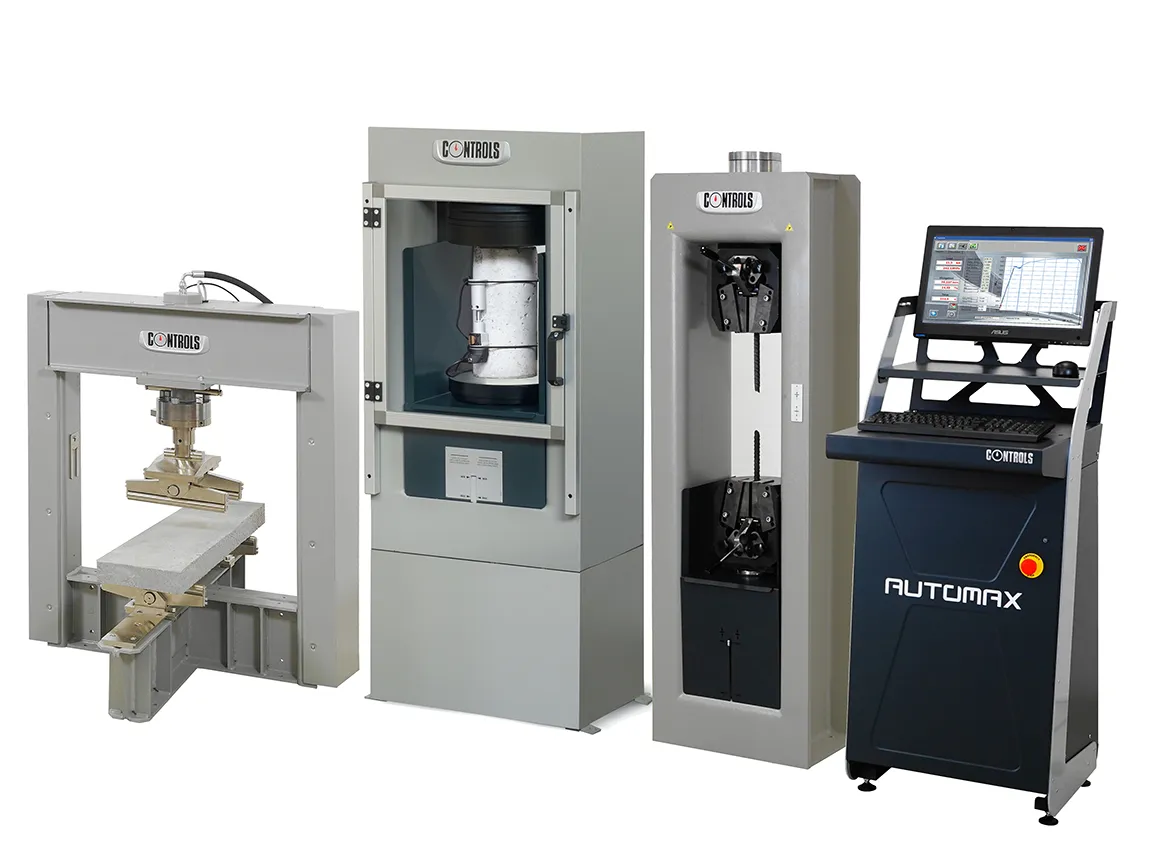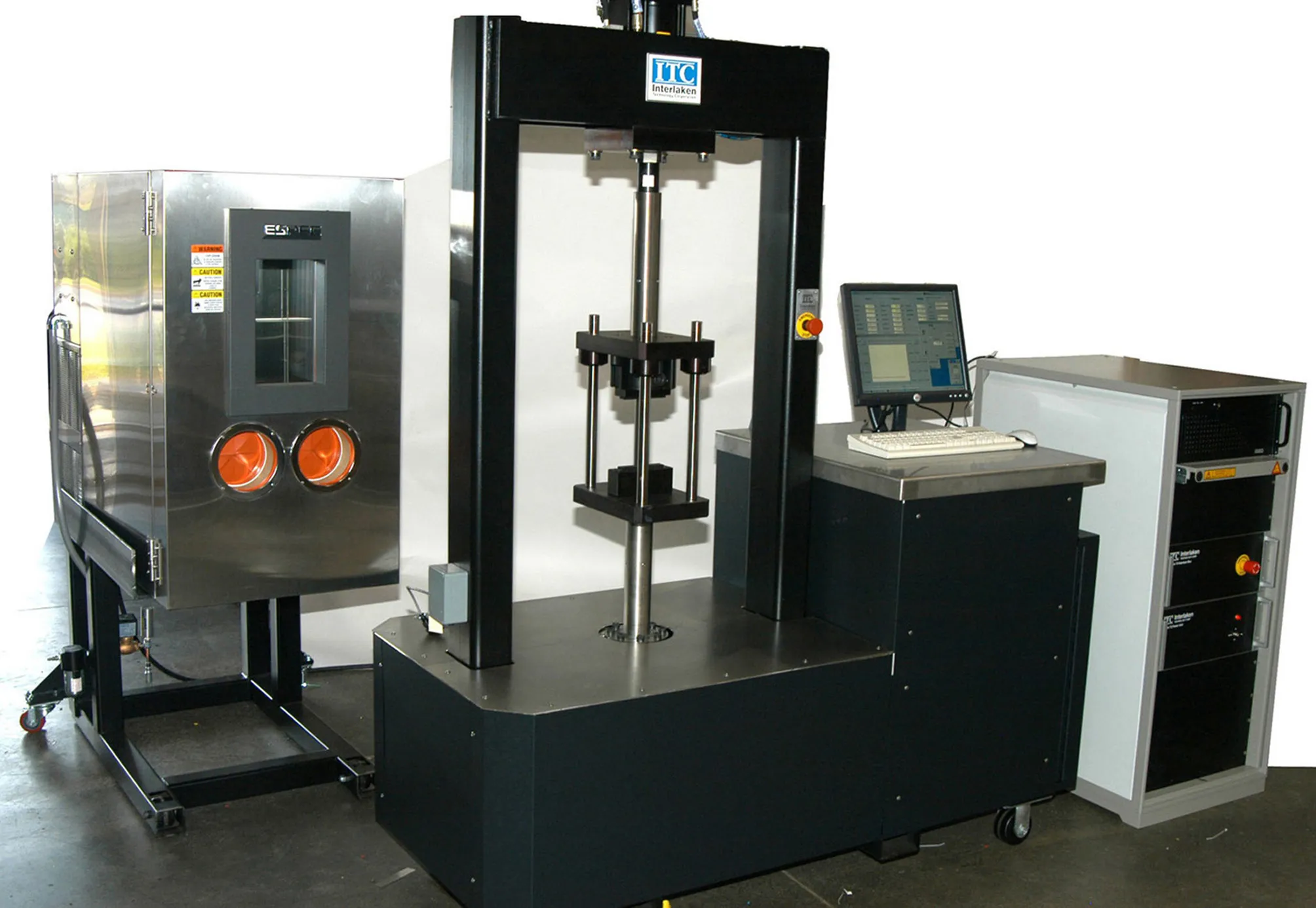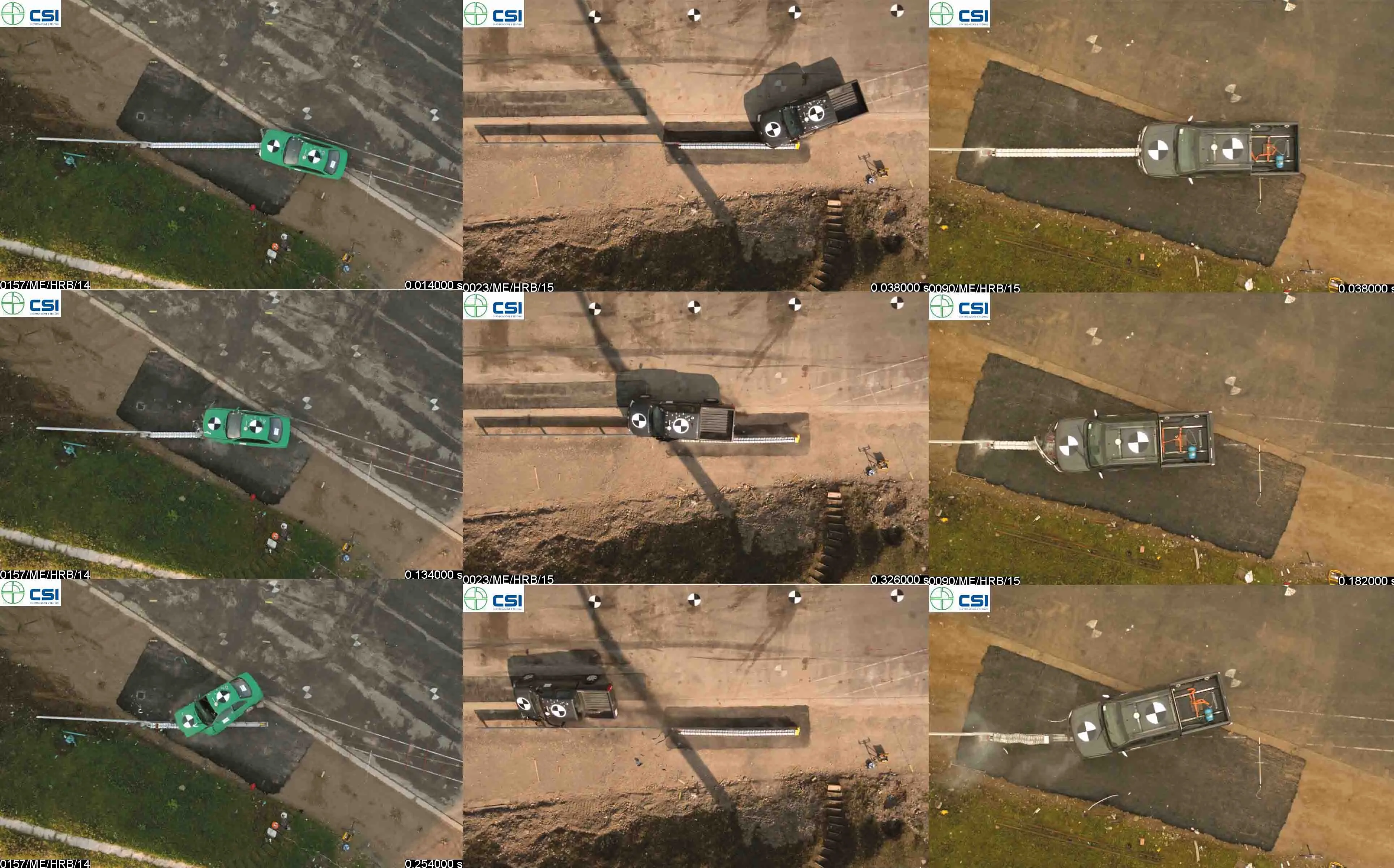Fibre-reinforced concrete (FRC) has long been used for road pavements and is now a common material for civil engineering applications such as precast tunnel segments and sprayed concrete linings.
However, testing FRC is challenging because the fibres – which are usually steel or macro-synthetic – rupture suddenly, causing the specimen to lose its bearing capacity. During this critical phase any sudden release of elastic energy by the frame of the testing machine may cause the premature rupture of the specimen and the consequent loss of the test results. For this reason, the International Standards require a minimum frame stiffness of 200 kN/mm.
2139 CONTROLS has recently added to its range of flexural testing frames with a new 200 kN capacity model especially designed to test FRC and sprayed concrete specimens, exceeding the Standards' stiffness requirements. The additional stiffness comes from the construction of the frame sections and the layout which keeps the specimen aligned with the frame crossbeams maximising structural rigidity. The new layout also allows easier frontal specimen loading and positioning, according to CONTROLS. It can accommodate large specimens such as slabs, flagstones, concrete beams and kerbs up to 650mm long. The frame is fitted with a high-accuracy load cell and can be provided with a LDT displacement transducer to read piston travel.










